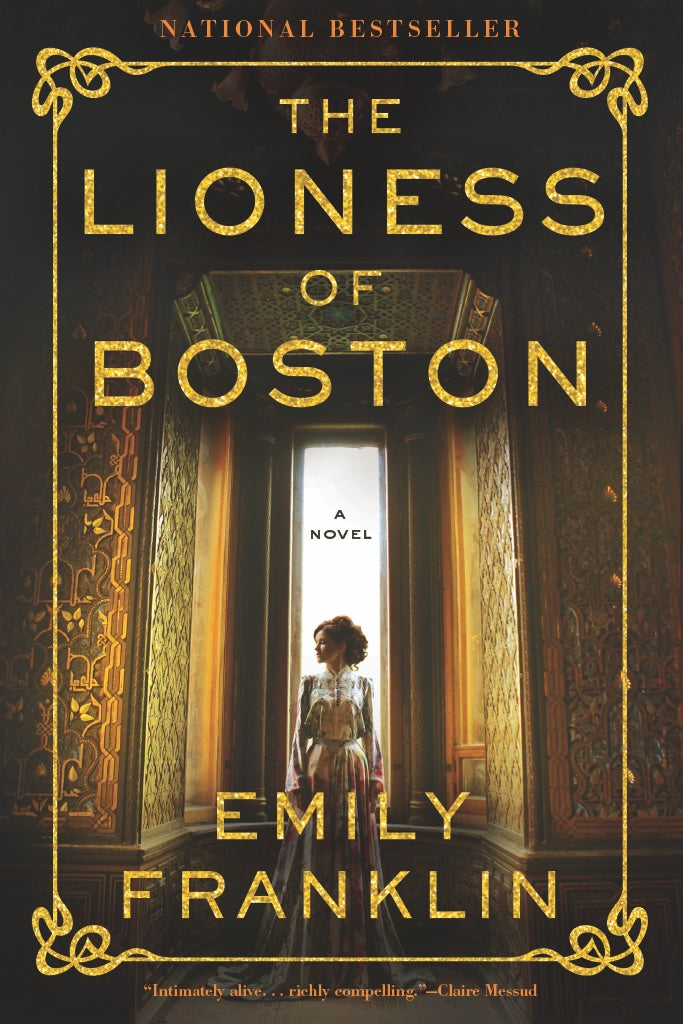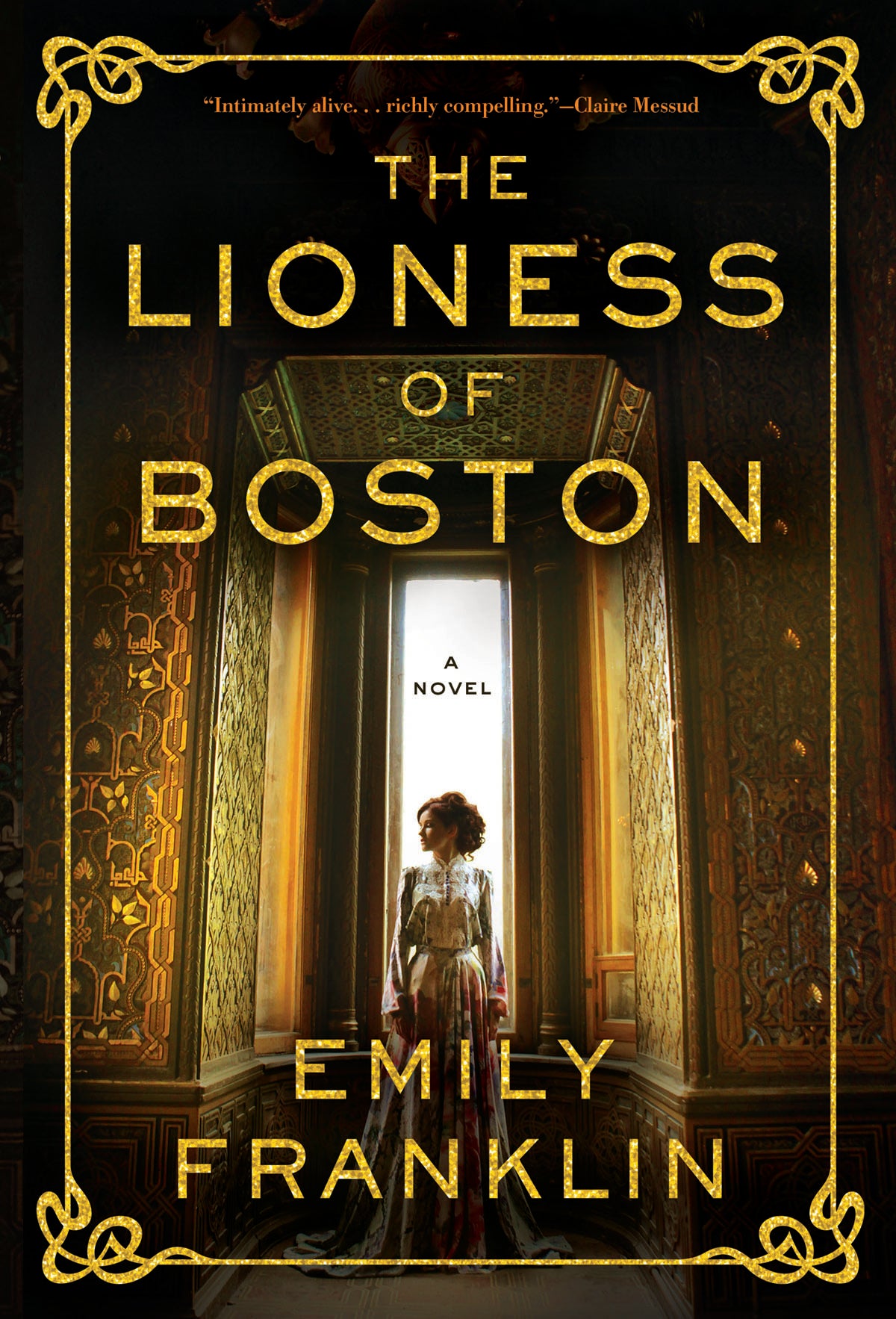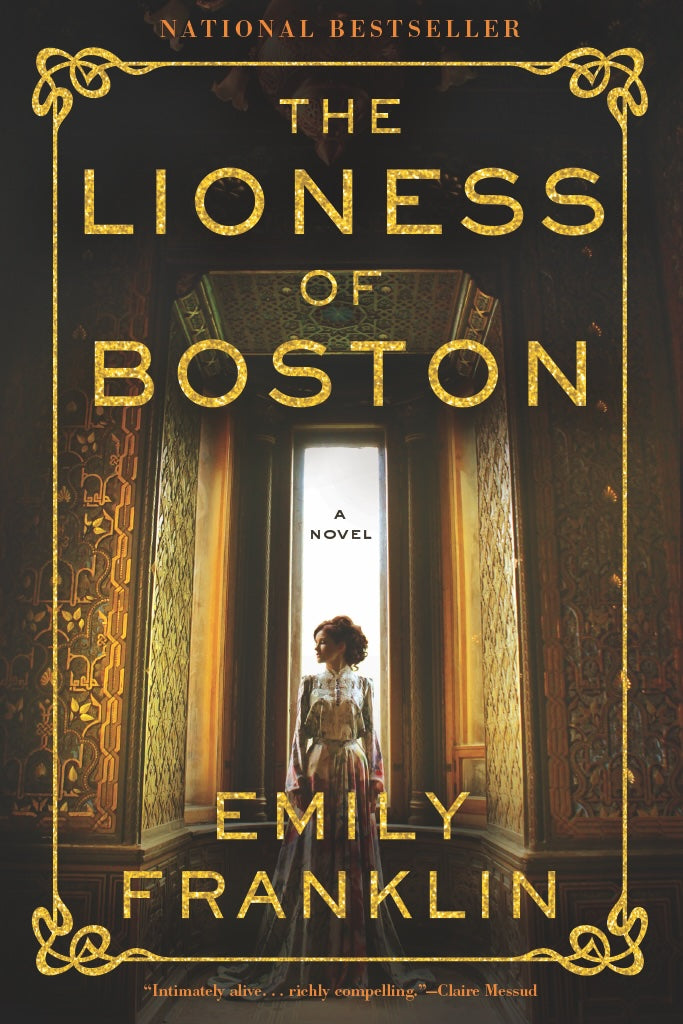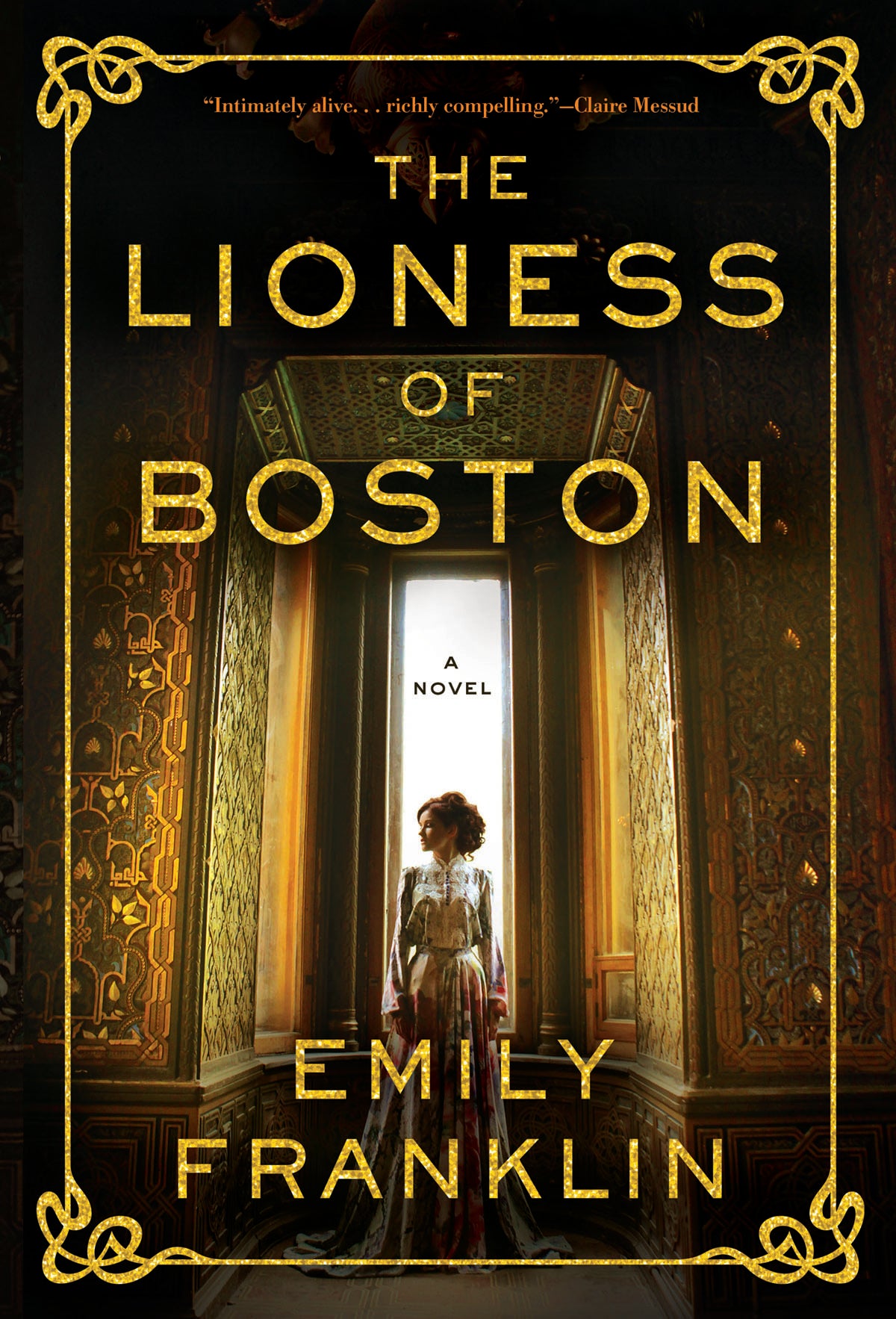

“Brings Isabella Stewart Gardner fully, intimately alive—irrepressible and avid for life. In this richly compelling novel, Emily Franklin beautifully conjures this extraordinary woman and her world.”—Claire Messud, author of The Emperor's Children
A deeply evocative and imaginative portrayal of the life of Isabella Stewart Gardner, a daring visionary who created an inimitable legacy in American art and transformed the city of Boston itself.
By the time Isabella Stewart Gardner opened her Italian palazzo-style home as a museum in 1903 to showcase her collection of old masters, antiques, and objects d’art, she was already well-known for scandalizing Boston’s polite society. But when Isabella first arrived in Boston in 1861, she was twenty years old, newly married to a wealthy trader, and unsure of herself. Puzzled by the frosty reception she received from stuffy bluebloods, she strived to fit in. After two devastating tragedies and rejection from upper-society, Isabella discovered her spirit and cast off expectations.
Freed by travel, Isabella explores the world of art, ideas, and letters, meeting such kindred spirits as Henry James and Oscar Wilde. From London and Paris to Egypt and Asia, she develops a keen eye for paintings and objects, and meets feminists ready to transform nineteenth century thinking in the twentieth century. Isabella becomes an eccentric trailblazer, painted by John Singer Sargent in a portrait of daring décolletage, and fond of such stunts as walking a pair of lions in the Boston Public Garden. The
Lioness of Boston is a portrait of what society expected a woman’s life to be, shattered by a courageous soul who rebelled and determined to live on her own terms.
Praise for The Lioness of Boston
“Gorgeous writing enhances this absorbing portrait of a fascinating woman ahead of her time.” —Toronto Star, One of the Year’s Best
“...the remarkable story of Isabella Stewart Gardner, capturing all the nuances of her character with grace and feeling. Highly recommended.” —Historical Novel Society
“Extraordinary....Vividly written in beautiful prose.” —Provincetown Magazine
“...a rich, nuanced portrait of a woman hungry to find beauty, knowledge, and her own place in the world.” —Shelf Awareness
“The life story of Isabella Stewart Gardner, from her marriage in 1861 to Jack Gardner, a member of Boston’s ‘High Society,’ through her death in 1924....Franklin’s lyrical, erudite style befits Belle and grabs readers’ attention.” —Library Journal, starred review
“The Lioness of Boston looks at how the city's reigning society tried to ice Gardner out but failed when she found that following her own vision—and aligning herself with likeminded rulebreakers—was more important than meeting the standards of brittle Brahmins. And whose name do we all remember now?” —Town & Country, A Must-Read Book
“A vivid narrative...brims with pitch-perfect period details...cannily captures Isabella Stewart Gardner’s ambition, independence, and quirks. Fans of strong female protagonists and Gilded Age historicals will enjoy this.” —Publishers Weekly
“The Lioness of Boston is a captivating story of a significant woman in Boston’s history who left that city a cultural legacy to last the ages. This beautiful novel will appeal to those who love masterful historical fiction, literary fiction, and stories of triumphant women who leave an indelible mark.” —New York Journal of Books
“Emily Franklin takes us into the very heart and soul of Isabella Stewart Gardner in her engaging historical fiction novel....In Franklin’s writing, Gardner is headstrong, sensitive, and in a sense — given the blue-blooded circles in which she tried to live — cursed with a curious mind and a desperate desire to make a mark on the world. Of course, we know that Gardner does eventually do so, with the opening in 1903 of an Italian palazzo-style home as a museum to showcase her impressive collection of old masters, antiques, and objets d’art. But with a novelist’s freedom, Franklin builds the story of how this stunning art institution came to be by jumping off Gardner’s real-life tragedies, remarkable relationships with people of note, and extensive foreign travels, which provide solace to her troubled soul.” —Martha’s Vineyard Times
“Franklin’s gorgeous, extraordinarily intimate and timely novel about Isabella Stewart Gardner showcases the life of a daring, brilliant woman who refused to be confined by the mores of her day, even as she searched for her truest self. So richly alive, I was running to Google to reacquaint myself with every mentioned painting, so moving, I wept over the tragedies and delighted in her bold success. How could any reader not be inspired by the cast of creatives including Oscar Wilde, Henry James, John Singer Sargent, and more? This book is just shatteringly good, with writing so artful, Isabella herself would surely approve.” —Caroline Leavitt, author of Pictures of You
“An engaging portrait of a bold yet vulnerable woman….A perennial tale of a woman fighting for her place in a man’s world.” —Kirkus
“This beautiful, sensitively written novel explores the fascinating life of Isabella Stewart Gardner—feminist before feminism, celebrity before celebrity. Captivating and evocative, The Lioness of Boston transported me to America’s Golden Age. I couldn’t put it down.” —Jessica Shattuck, author of The Women in the Castle
“The Lioness of Boston shows the deft touch of Edith Wharton and the delightful pomp of The Gilded Age—it’s a book both elegant and entertaining, one to savor line by line even as it carries us forward on the spirit and audacity of the narrator. Emily Franklin has rendered Isabella Stewart Gardner a classic literary heroine, one who emerges from heartbreak and defiance to shape her own life and the culture of an entire city.” —Timothy Schaffert, author of The Perfume Thief
“A novel of blazing insight, The Lioness of Boston captures the daring life and mind of the unforgettable woman who transformed American art and the city of Boston itself. This masterfully written work of historical fiction will remind some of Lily King’s Euphoria and others of Melanie Benjamin’s The Swans of Fifth Avenue. The Lioness of Boston is the best kind of novel—at once a deft page-turner and a thrilling love story about a woman’s passion for an independent life—that will sear your mind, break your heart, and leave you forever changed.” —Dawn Tripp, author of Georgia: A Novel
“The Lioness of Boston is a treasure trove of art, sensuality, Boston history, and more. Emily Franklin has captured Isabella Stewart Gardner’s blazing life and the light it sheds on the lives of women then and now.” —Rachel Kadish, author of The Weight of Ink
BOOK DISCUSSION
Here are some questions to consider:
• Isabella is rejected early in her Boston life. How does this rejection influence her character? Are there ways this rejection helps her?
• What draws Isabella to Jack? What traits does she have that he finds compelling do you think? How does their marriage change during the course of the book?
• What is Isabella looking for in a friend? Do you think she finds it? How would you describe her circle of friends by the end of the novel?
• How does the tragedy Isabella experiences influence her later life decisions?
• Scandal seems unavoidable for Isabella—do you think it finds her or she finds it?
• Isabella isn’t an artist, yet she does have an artistic vision. How do you see this vision throughout the book, prior to the opening of the museum?
• Though this novel starts in 1861 and closes in 1903 with the opening of the museum, there are many issues discussed that still are relevant today. Discuss these themes (misogyny, racism, cliquishness, etc.).
• Is there a scene that resonated for you personally? If so, why? Are you comfortable sharing this with the group?
• What did you learn about Boston history or world history that you did not know prior to reading this novel?
• Isabella says that we collect all that we are. Is there an object in your own home that tells a story about you? Or a collection?
• Who—or what—is Isabella’s greatest love? • How does Isabella’s older voice looking back differ from the voice in book 1-4?
• What story elements surprised you?
• Isabella was the first woman to open a museum in the United States. She decided in her will to state that nothing be moved. Why?
• Were you compelled to look up any works of art or details from the novel? If so, which ones and why?
• Why do you think The Lioness of Boston is the title of this novel?


